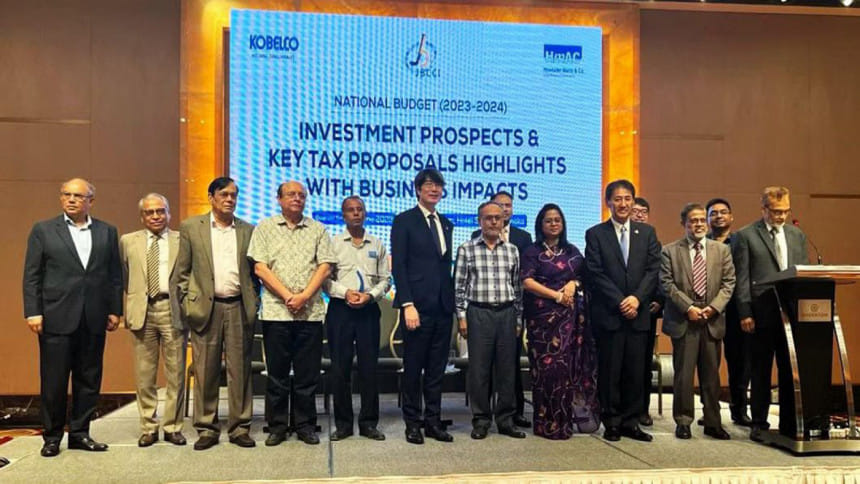Cut customs barriers for more Japanese investment

Bangladesh needs to improve on cumbersome government approval procedures, customs clearance delays, restrictions through customs duty and processes for receiving remittance to attract more Japanese investment, said Iwama Kiminori, Japanese ambassador to Bangladesh, yesterday.
"In particular, delays in LC payments are often encountered in Bangladesh, which increases the financial and time burden on companies, and thus require immediate action," he said.
"I hope these remaining problems would be continuously addressed in the course of the next round of meetings so that we can find improvements in the situation in the near future," he said.
Kiminori was addressing a seminar on the national budget for 2023-24 titled "Investment Prospects and Key Proposals Highlights with Business Impacts" at Sheraton Dhaka.
The Japan-Bangladesh Chamber of Commerce and Industry (JBCCI) in collaboration with Japan External Trade Organisation (JETRO) organised the seminar which was attended by diplomats, businesspeople of Bangladesh and Japan, economists, exporters and importers.
Discussions on the overall tax reform, especially reducing reliance on custom duties for generating revenue, is extremely essential not only for the formulation of a sound budget but also for decreasing the burden of the business community, said Kiminori.
"Going back to our common target and aspiration to induce more investment to Bangladesh from Japan, we need emphasise the need to improve further to lure even more Japanese investors," he said.
A 5th Japan-Bangladesh Public Private Joint Economic Dialogue was held last April, shortly before a meeting between Sheikh Hasina and Kishida Fumio, prime ministers of the two countries, in Tokyo, he said.
It was "to summarise the discussion for identifying the issues that we could reach improvement on and those issues which we should continue to find solutions jointly", Kiminori also said.
"Taking this opportunity, I would like to commend the efforts of stakeholders from both sides who have actively engaged in the process," he said.
Bangladesh should sign an economic partnership agreement (EPA) with Japan before 2026 so that it can enjoy duty-free benefits on making the United Nations status graduation from a least developed to a developing country that year, said the Japanese envoy.
Customs rules removing trade barrier need to be included in the EPA through consultations between the two sides, said Yuji Ando, JETRO country representative in Bangladesh.
Investing in doing business in the Seven Sisters, the northeastern Indian states, might not be viable as the size of the population is low, said Md Humayun Kabir, former president of the Institute of Chartered Accountants of Bangladesh (ICAB).
Rather Japanese companies should be drawn to invest in the special economic zone in Araihazar, Narayanganj because of the availability trained workers and better infrastructures and road connectivity, he said.
The exchange rate of the taka with the US dollar reached its current state at a high price, said Selim Raihan, executive director of the South Asian Network on Economic Modeling.
When other countries devalued their currencies from time to time to adjust with the US dollar, Bangladesh did not do so. As a result, the exchange rate may rise further, he said.
The central bank does not have the luxury to sell the US dollar in the market anymore as the country's reserve may fall below $30 billion, he said.
It will be difficult to attract foreign direct investment for some options incorporated in the proposed budget, said Maria Howlader, chief executive officer of the Howlader Maria & Co.
The proposed budget for the next fiscal year should have been more business-friendly, she said.
Myungho Lee, president of the JBCCI, Muhammad Abdul Mazid, former chairman of the National Board of Revenue (NBR), Zahid Hossain, former principal economist of the Asian Development Bank, GM Khurshid Alam, former private sector specialist of the World Bank, Aminur Rahman, former member of the NBR, and Md Anwar Shahid, secretary general of the JBCCI, also spoke.
Syed Samiul Huq, a director of the JBCCI, moderated the discussion.

 For all latest news, follow The Daily Star's Google News channel.
For all latest news, follow The Daily Star's Google News channel. 



Comments